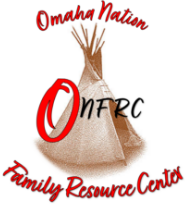Vision Statement
Empowering Tribes Through
Education And Support
It is the vision of the ONFRC that:
- Every Omaha child, youth, and family member will recognize, understand, and take their place in our great Tribal Circle.
- Every Omaha child, youth, and family member will make their way across the Four Hills of Life in a sacred manner.
- Every Omaha child, youth, and family member will recognize and focus on their Spirit’s innate strengths, abilities, and potential within.
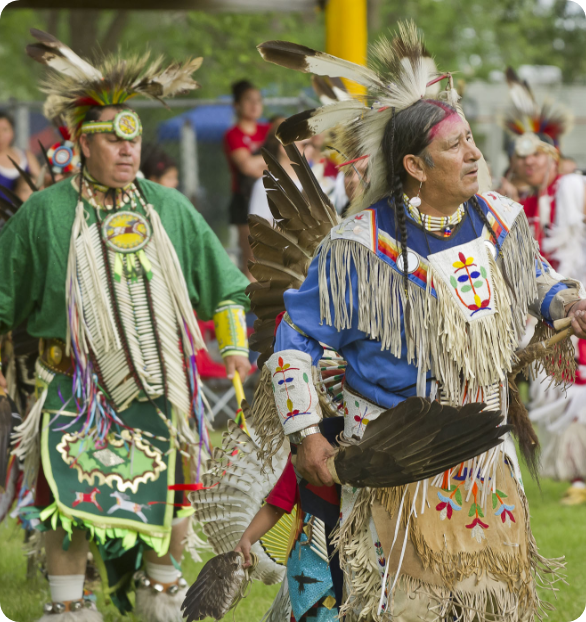
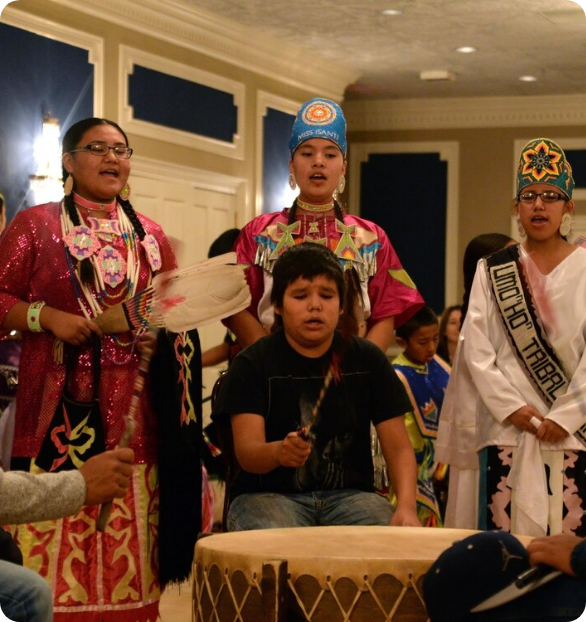
Mission Statement
Empowering Omaha Tribe Through Trauma Informed and Cultural Enriched Services
The mission of the Omaha Nation Family Resource Center (ONFRC) is to lead our community toward wellness and healing by supporting our children, youth, and families through traditional and contemporary teachings, modeling, and services utilizing the highest quality resources available to the Omaha Nation and to the ONFRC.
The ONFRC will turn no child, youth, or family away from services, regardless of their cultural background. However, all services and activities will focus on the theme “Culture as a Healing Way”, meaning that all services and activities will be based on Omaha traditional teachings and values.
Inclusive Healing Approach
Purpose Of The ONFRC
The purpose of the ONFRC shall be to provide for and to promote the health, social, educational, vocational, character, and cultural development of Omaha Tribal children, youth, and families without regard to race, color, creed, or national origin through the provision of prevention, intervention, and support programs in order to build the capacity of the tribal organization and community.
Omaha Community Enrichment
Program Design And
Methodology
The ONFRC operates under the belief that it must serve all Omaha children, youth, and families of our tribal communities. The programs, services, and activities provided within the boundaries of the Omaha Reservation must be grounded in and reflect the beliefs, teachings, and traditions of the Omaha Nation. By doing so, the ONFRC will work to create a response in addressing the following Areas of Community Concerns:
- Substance abuse
- Loss of cultural identity
- Suicide ideation
-
Family violence, domestic
violence, sexual assault/abuse
- Family Preservation
- Youth crime and delinquency
- Trauma and effects of trauma
Positive Youth Development:
- Human growth and development
- Social skills/Emotional skills/Cultural skills
- Responsibility for behavior
- Learning Skills
- Family Preservation
- Development of Tribal youth-serving systems and programs
- Work within the community and public school systems
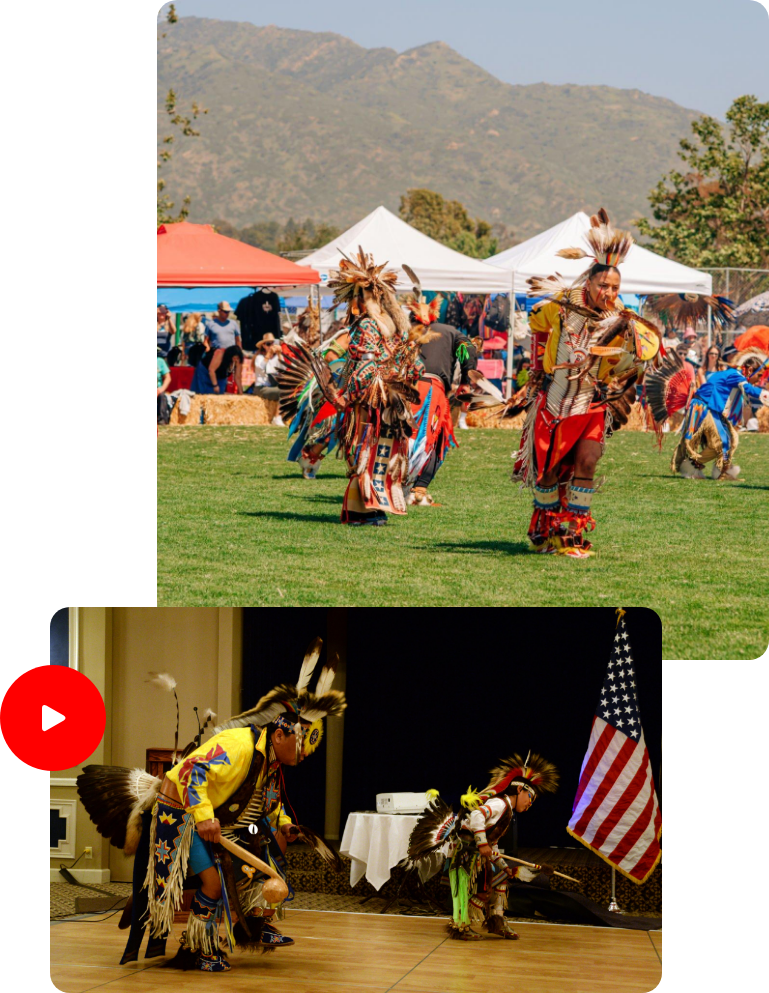
Development
Developing a
Community Response
Community Response is a system of supports and services for children and families to strengthen families and build protective factors. It is a system that can prevent families from unnecessary entry or re-entry into higher–end systems of care (juvenile justice, child welfare system, etc.) It is focused on primary, secondary and tertiary levels of services and requires a broad-based collaboration committed to working together to align and access all available resources and to address gaps in order to build a robust service delivery system.
Community Response is the actions a community/tribe takes to develop a system of resources and services which strengthen families and build protective factors and access to available resources. The ONFRC will develop a vehicle for and access to community response activities in the form of creating strategic planning teams and processes, training opportunities, and community forums designed to increase community involvement.
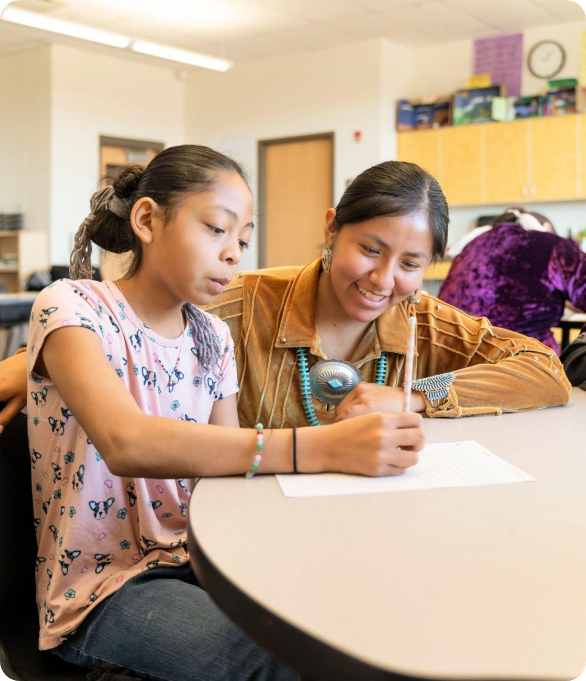
ONFRC Community Response activities have two key purposes:
- Assist collaborations of community-tribal agencies, organizations and individuals in developing and maintaining a broad based system of services for children, youth, and families through addressing gaps and barriers and effective use of resources.
- Assist tribal children, youth, and families in accessing needed services and resources in the community, especially during times of stress and crisis.
Community response increases child and family well-being and decreases the risk factors which lead to entry into higher-end systems of care (juvenile justice, child welfare, etc.)
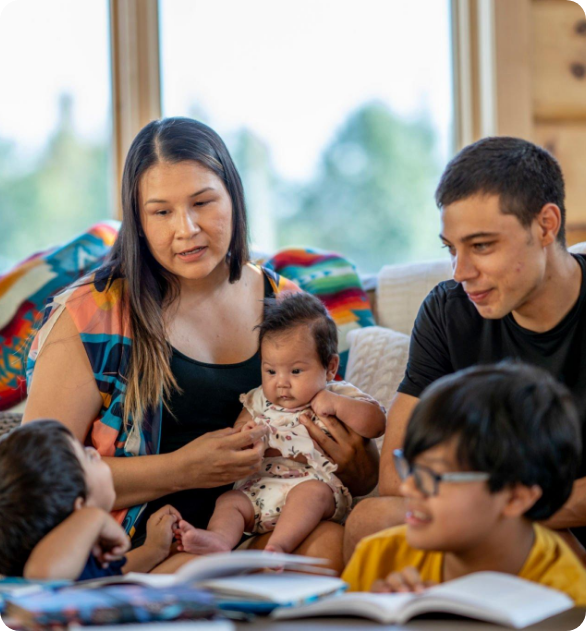
Guiding Principles
ONFRC Guiding Principles
Community Response…
- Is a voluntary system of services and support with children, youth, and families in our tribal communities
- Is a method that strengthens family, community, and cultural protective factors
- Is an approach that connects to isolated families that normally would not easily access resources
- Provides effective short term interaction with families to strengthen protective factors
- Aligns program and system services and effective use of community resources
- Is culturally and linguistically competent
- Is family-centered, family-driven, culturally competent, and trauma-focused
- Enhances the prevention system for the well-being of the entire community
Response Process
Community Response Process
Through coordinated community meetings or forums, the ONFRC will work with each community to create a system flow chart and process guidelines to develop strategies as a community response which includes:
- Referrals from agencies and community partners
- Self-Referrals from Families
- Determination of process
- Process for providing managed, deliverable services
- Prioritization of families for services based on community resources and needs
- Use of required forms (as written below) by partnering agencies.
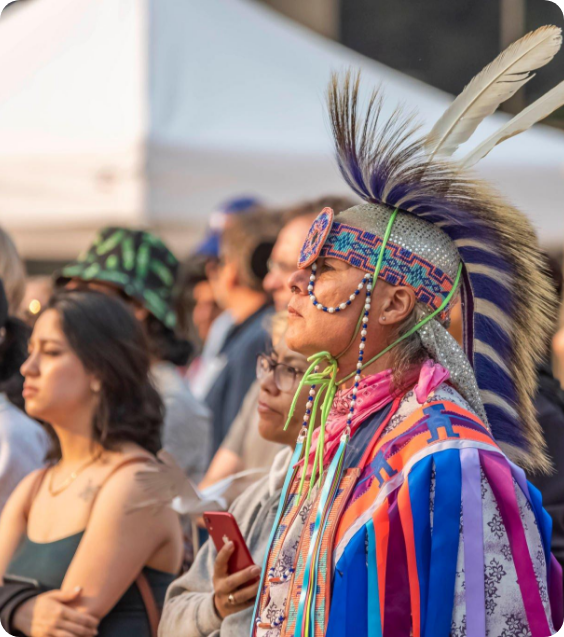
Collaboration
Community Collaborative
The ONFRC will assist in developing and maintaining coalitions, planning teams, oversight committees, etc. Community collaboration will be focused on child, youth, and family well-being that is developed by a broad base of community stakeholders and professionals.
- Community collaboration is a public/private partnership that blends funding streams to work across partnering organizations and address the gaps in services.
- Facilitates decision-making, communication, sharing of data and mutual support and accountability.
- Acts as a portal for state/federal, public/private grants and works to blend and leverage funding streams, support continuous communication, and facilitate assessment, planning, evaluation, and implementation.
- Provides training for leadership development, community inclusion, systems change strategies, and the tools used in assessment, planning and evaluation.
- Integrates collaboration for Substance Use Prevention, Juvenile Justice, Child Abuse Prevention, Systems of Care for Mental Health, Early Childhood Collaborations, Early Learning Connection Partnerships, Home Visiting and Family Preservation Services, and other collaborative efforts required by funding and related to the outcomes for community well-being.
- Braiding of public and private funding plus flexible funding that is needed for prevention.
ONFRC Service Delivery System Enhancement Functions
The ONFRC will work with the entire collaborative (communities, providers, and tribal leadership) in order to enhance the tribal service delivery systems and programs.
Assessment of availability of Services and Supports
- Broad-based collaboration; Conducts and updates a community-wide needs assessment and analysis of service array process to establish strengths, gaps and needs.
- Develops and maintains a resource list which identifies what is available in the target area.
- Develops Service Utilization Forms to figure out where families are being referred from and if families are coming into contact with Community Response partners early enough and if the continuum of services and supports are in place and adequately resourced.
The ONFRC will assist programs and youth-serving systems in developing capacity in order to better serve tribal members and to enhance collaboration, communication, and cooperation by creating:
Shared Data System: developed to track, record, utilize information, intake and closure forms.
Intake, Satisfaction, Strength And Needs And Protective Factors Survey And Closure Forms : Help To Establish Need, Goals, Plans And Outcomes. The System Gaps And Barriers Should Be Captured In A Data System Showing Family Needs And Barriers And Should Be Presented In Aggregate To Community Partners.
Common intake/referral forms: helps to reduce trauma by reducing the amount of times a family must tell their “story” and provides consistency by capturing essential information for further assessment and planning at initial interview. (Additional questions can be asked per specified need of agency or organization.)
Track population data: Track referral networks at the local level to identify population and community trends in order to develop local best practices, gather and warehouse community data, and identify areas of gaps within the community continuum of care.
Enhancement Service Coordination: Works with the tribal Continuum of Care for Housing and Homelessness for homeless or near homeless families to assure an array of quality residential housing.
Collaborative Partnerships: Partners involved in Community Response should have MOAS to establish common policies and practices and shared accountability.
